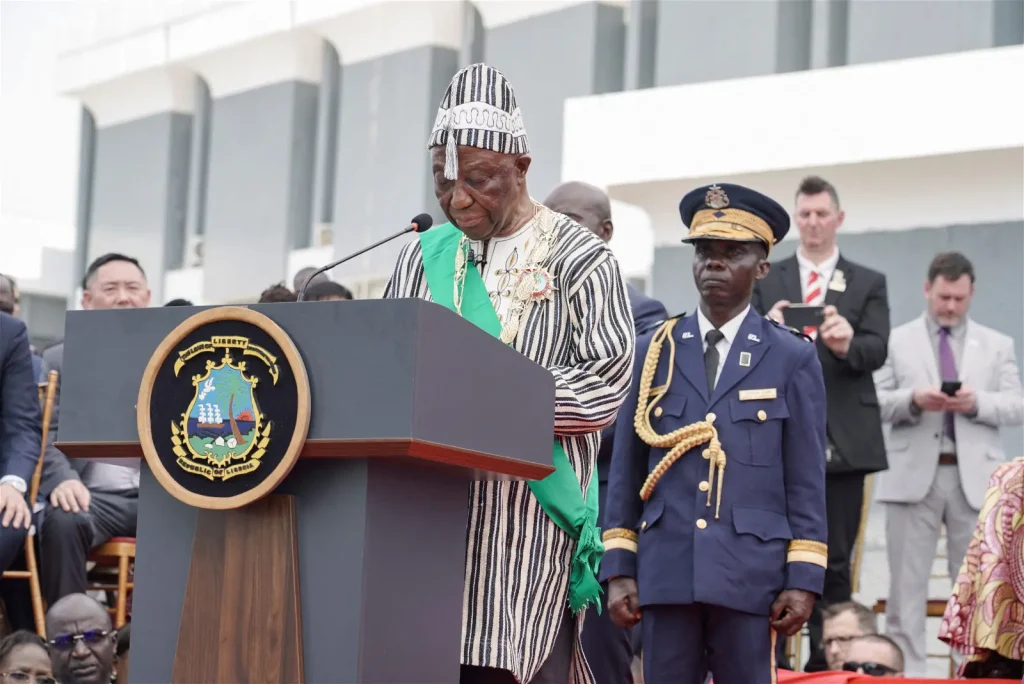The House of Representatives has approved President Joseph Boakai‘s request to authorise $41.3 million for immediate use in February, preventing a possible government shutdown.
The decision was taken on Tuesday following “thorough” investigation by the joint committee on Ways, Means, Finance, and Public Accounts and Expenditure, which is chaired by Rep. Dixon Seboe.
The committee responsible with examining the President’s proposal emphasised the importance of maintaining government operations while the 2024 budget is finalised and resubmitted.
The President stated last week that while the draft budget for fiscal year 2024 has been returned and is being finalised for resubmission, government activities must continue in order to avert a shutdown.
“In view of the above, we are seeking the authorisation to spend the amount of US$41,300,000.00 as reflected in the detailed attachment. “This amount will cover the Government’s operations for the month of February 2024,” the President stated.
Following its review, the joint committee requested that the report be adopted, accompanied by a resolution, and forwarded to the Senate for approval. During debates, Rep. Edward Flomo (District #13, Montserrado County) proposed a resolution to endorse the committee’s report, which was passed with a majority vote of 38 in favour, two against, including Rep. Musa Hassan Bility (District #7, Nimba County), and two abstentions.

Allocation Breakdown
Of the total US$41.3 million, US$31,700,000 (77%) is set aside for expenses. This comprises $5,700,000 (14%) for debt service and $26,000,000 (63%) for staff remuneration.
Policy priorities are allotted US$2,000,000 (5%), including US$1,914,210 (5%) dedicated to the President’s 100-day targets and US$58,790 for GAC audits.
Government activities, as detailed in the special budget draft, will receive $7,600,000 (18%). This includes US$1,250,000 (3%) for security services, US$100,000 for Armed Forces Day, US$995,500 (2%) for food and catering services (hospitals, jails, barracks), US$679,446 (2%) for office supplies, and US$547,899 (1%) for fuel and lubricants, among other costs.
The House of Representatives will send the resolution to the Liberian Senate for examination and action, which might include approval, rejection, or modifications.
Why is the national budget delayed?
In December 2023, the outgoing 54th Legislature failed to act on the George Weah Administration’s proposed National Draft Budget of US$625,570,000. The Legislature returned the proposed budgetary envelope and asked the incoming Boakai-Koung administration to study it, align it with their government’s priorities, and resubmit. With only 22 days till it leaves office, the Weah administration invoked the Public Financial Management Law to keep the government operating.
The law states that “In the case where the Legislature is unable to approve the National Budget before the start of the fiscal year, the Minister is authorized to collect revenues and approve expenditures, in line with the proposed budget, up to one-twelfth (1/12) of the Budget of the previous fiscal year. The Minister’s expenditure on said (1/12) will be included in the future financial outturn.”
According to the PFM Law, one-twelfth of the authorised Fiscal Year 2023 budget of $782,940,000 equals $66,078,333.


